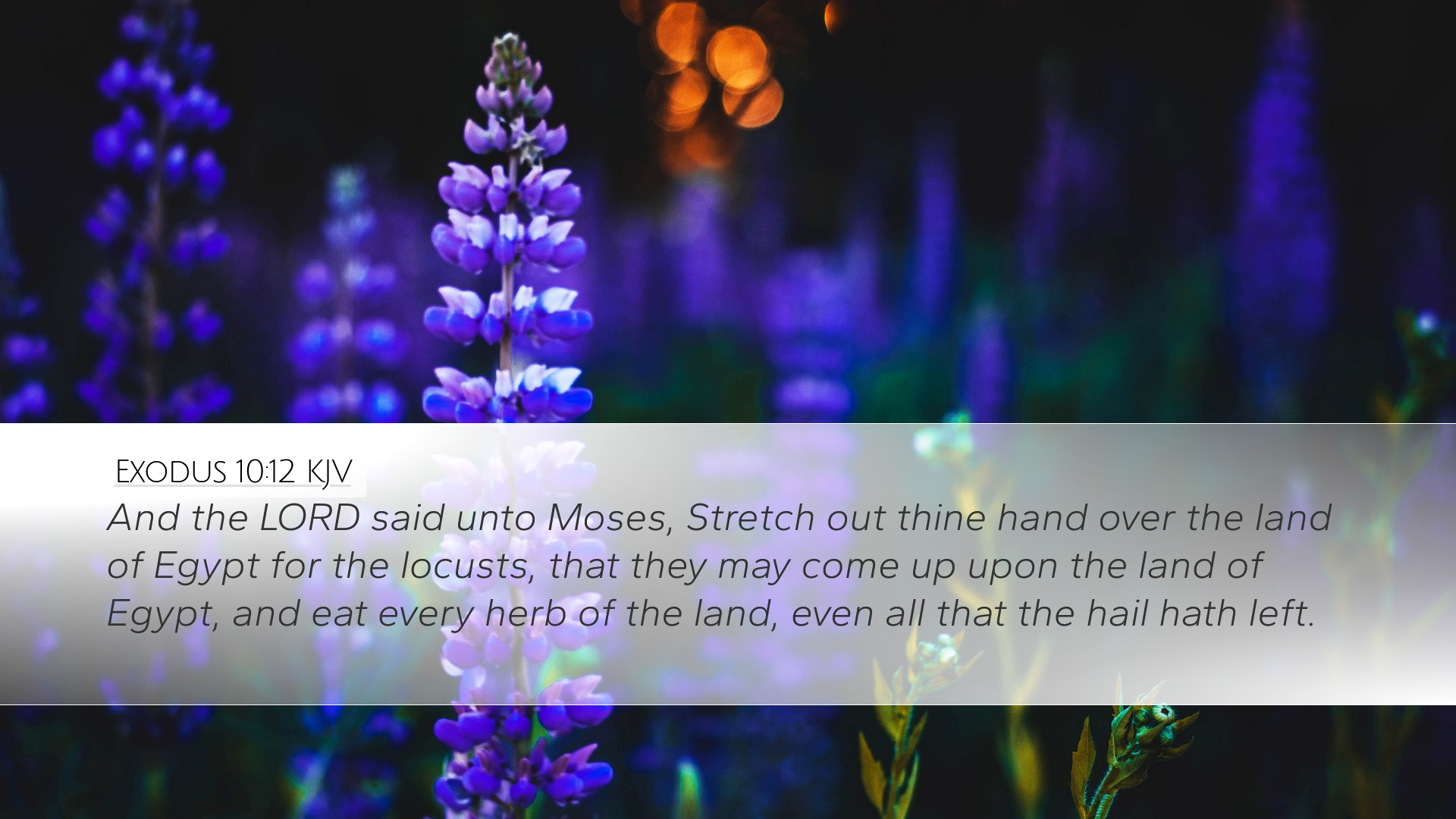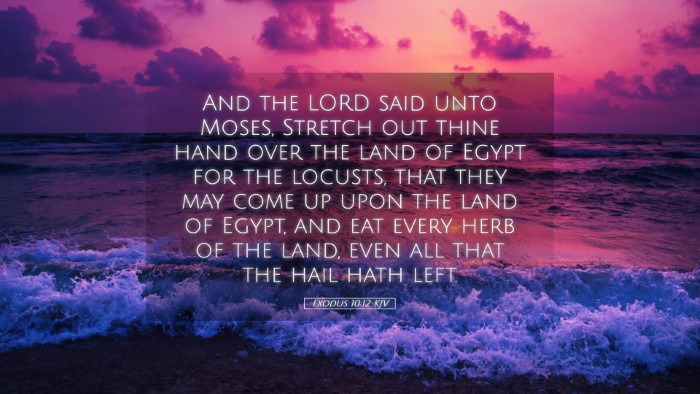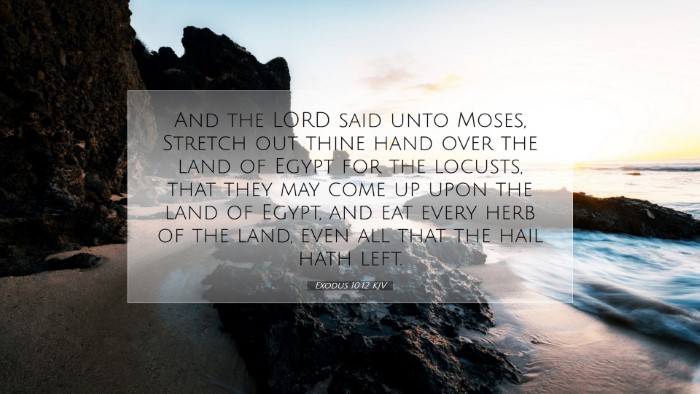Bible Commentary on Exodus 10:12
Exodus 10:12 states: "And the LORD said unto Moses, Stretch out thine hand over the land of Egypt for the locusts, that they may come up upon the land of Egypt, and eat every herb of the land, even all that the hail hath left." This verse represents a crucial moment in the series of plagues that befell Egypt as a demonstration of God's power and a means of delivering His people.
General Context
The backdrop of this verse is the narrative of the plagues in Egypt, where God, through Moses, seeks to compel Pharaoh to release the Israelites from bondage. The previous plagues had already displayed God's might and sovereignty, yet Pharaoh's heart remained hardened. This particular plague of locusts serves as both a judgment against Egypt and a divine tool for achieving liberation for the Israelites.
Commentary Insights
-
Matthew Henry's Commentary:
Matthew Henry emphasizes the locusts as a symbol of divine judgment and the natural consequences of sin. He notes that the command to stretch out the hand over the land not only signifies God's authority but also illustrates the cooperative role of Moses in the divine plan. Henry remarks that this plague would be both devastating and a clear manifestation of God's intent to humble Egypt before the Israelites' God.
-
Albert Barnes' Notes:
Barnes stresses the enormity of the upcoming destruction caused by locusts, highlighting that they would consume all remaining vegetation and herbal produce. He views the command for Moses to stretch out his hand as a pivotal act illustrating the connection between divine sovereignty and human agency. Barnes further notes that despite the visible power of the locusts, the ultimate deliverance of the Israelites rests squarely in God's hands.
-
Adam Clarke's Commentary:
Clarke provides a detailed examination of the locusts' voracious diet and their impact on the land. He points out that locusts can devastate an entire area in a short span, signifying the seriousness of God's warning. He also discusses the recurring theme of God's patience with Pharaoh, contrasting it with Pharaoh's repeated refusals to heed the warnings. Clarke finds both a warning and encouragement in this passage, calling on readers to recognize God's persistent call for repentance.
Theological Implications
This verse and the surrounding context raise significant theological discussions pertinent for pastors, students, and scholars:
-
Divine Sovereignty and Human Responsibility:
The act of Moses stretching out his hand serves as a reminder that while God commands and disposes, He often uses human agents to execute His will. This interplay challenges believers to consider their role in God’s redemptive narrative.
-
Judgment and Mercy:
The plagues serve as a dual testimony of God's judgment against oppressors while simultaneously calling the oppressed to liberation. The locusts symbolize impending judgment that is severe yet fits within the broader narrative of God's mercy towards the Israelites.
-
God's Faithfulness to His Promises:
Throughout Exodus, God repeatedly affirms His covenant promises to the Israelites. This passage is integral in illustrating how God employs dramatic acts to establish His glory and fulfill His promises, reminding believers of the importance of trust in God's timing.
Practical Applications
For contemporary readers and church leaders, the insights drawn from Exodus 10:12 can enhance spiritual understanding and practice:
-
Prayer and Intercession:
The act of Moses praying and extending his hand can model the vital role of prayer in engaging with God's workings in the world. Believers are urged to be intercessors, joining in the divine purposes through supplication.
-
The Call to Obedience:
Moses' obedience to God's command sets a powerful example for Christians today. Leaders must reflect on their daily lives to ensure they are aligned with God's commands, furthering the mission of love and justice.
-
Awareness of Spiritual Dangers:
Churches and believers today can learn from Pharaoh’s hardened heart. The passage warns against dismissing God's warnings and encourages ready hearts that seek continual alignment with God's desires.
Conclusion
Exodus 10:12 encapsulates key themes of power, judgment, and deliverance that resonate deeply within the biblical narrative. The combined insights of public domain commentaries illuminate its rich theological implications and practical applications, serving as a foundation for deeper exploration and understanding of God's interaction with humanity.


